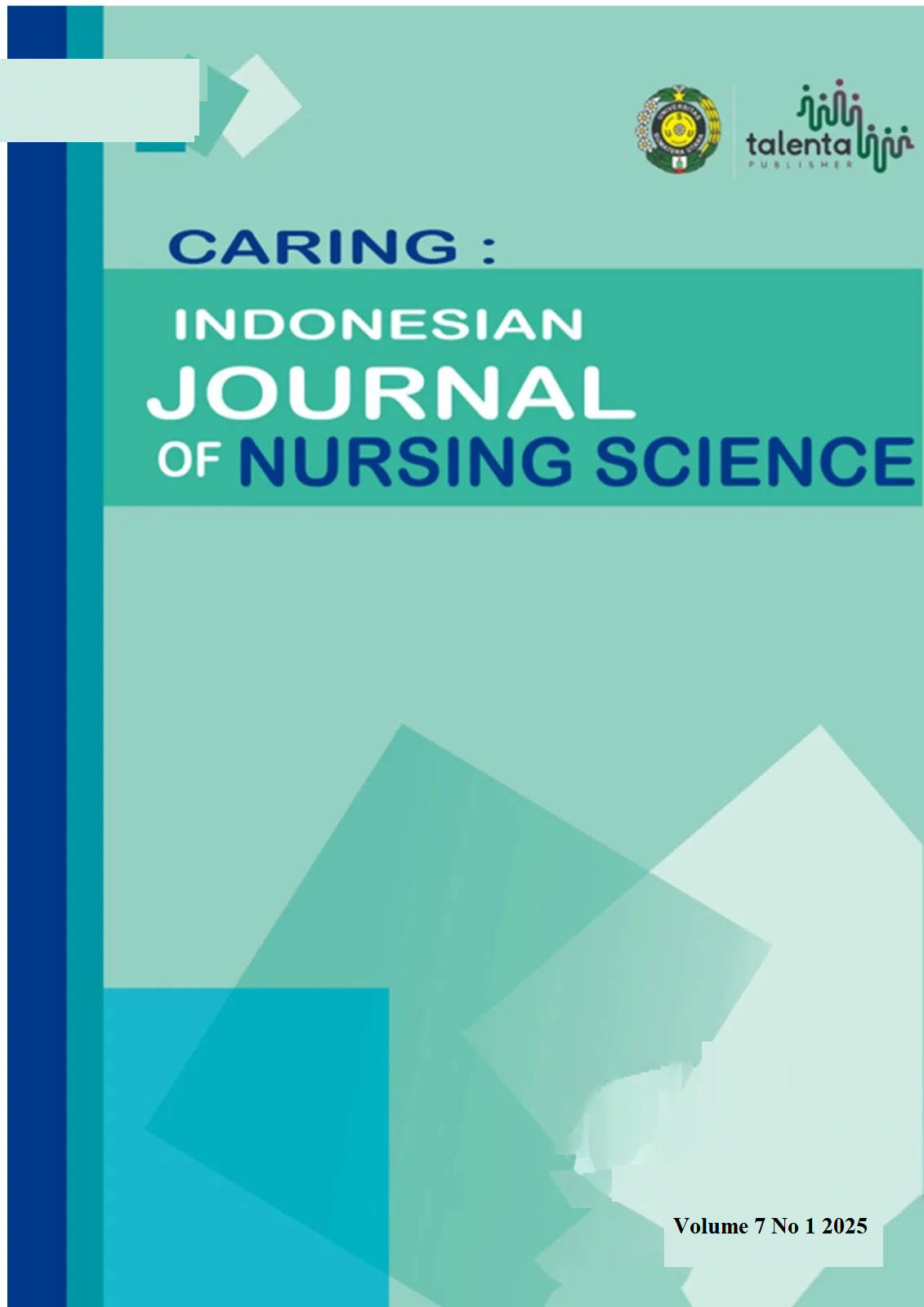Factors Related to the Implementation of Developmental Care in the Neonatal Intensive Care Unit
DOI:
https://doi.org/10.32734/ijns.v7i1.20591Abstract
Environmental stressors in the Neonatal Intensive Care Unit (NICU), such as noise, lighting, and invasive treatments, can interfere with premature infants' physiological responses, behavior, development, sleep, and central nervous system organization. Therefore, this study aims to analyze the relationship between nurses' factors (age, work experience, education level, and training) and their implementation of developmental care in the NICU. This quantitative study used a correlational analysis method with a cross-sectional design. The sampling technique applied was consecutive sampling, involving 70 NICU nurses as respondents. The inclusion criteria required that participants be nurses who had worked in the NICU for a minimum of 6 months and expressed willingness to participate in the study. The exclusion criteria included nurses who were on medical leave or currently unwell. Data were collected through a nurse characteristics questionnaire and a developmental care application questionnaire. The data were then analyzed using bivariate analysis with the Pearson test and multivariate analysis through linear regression. The results showed a significant relationship between age (p = 0.04), length of work experience (p = 0.03), and training (p < 0.0001) with the implementation of developmental care. However, education level was not significantly related to developmental care implementation (p = 0.873). The factor most strongly associated with the implementation of developmental care was nurse training (highest correlation coefficient = 0.426). There is a significant relationship between age, work experience, and nurse training in the implementation of developmental care in NICU settings. Among these factors, training plays the most crucial role in boosting nurses' confidence in applying developmental care practices.
Downloads
Downloads
Published
How to Cite
Issue
Section
License
Copyright (c) 2025 Caring: Indonesian Journal of Nursing Science

This work is licensed under a Creative Commons Attribution-ShareAlike 4.0 International License.








